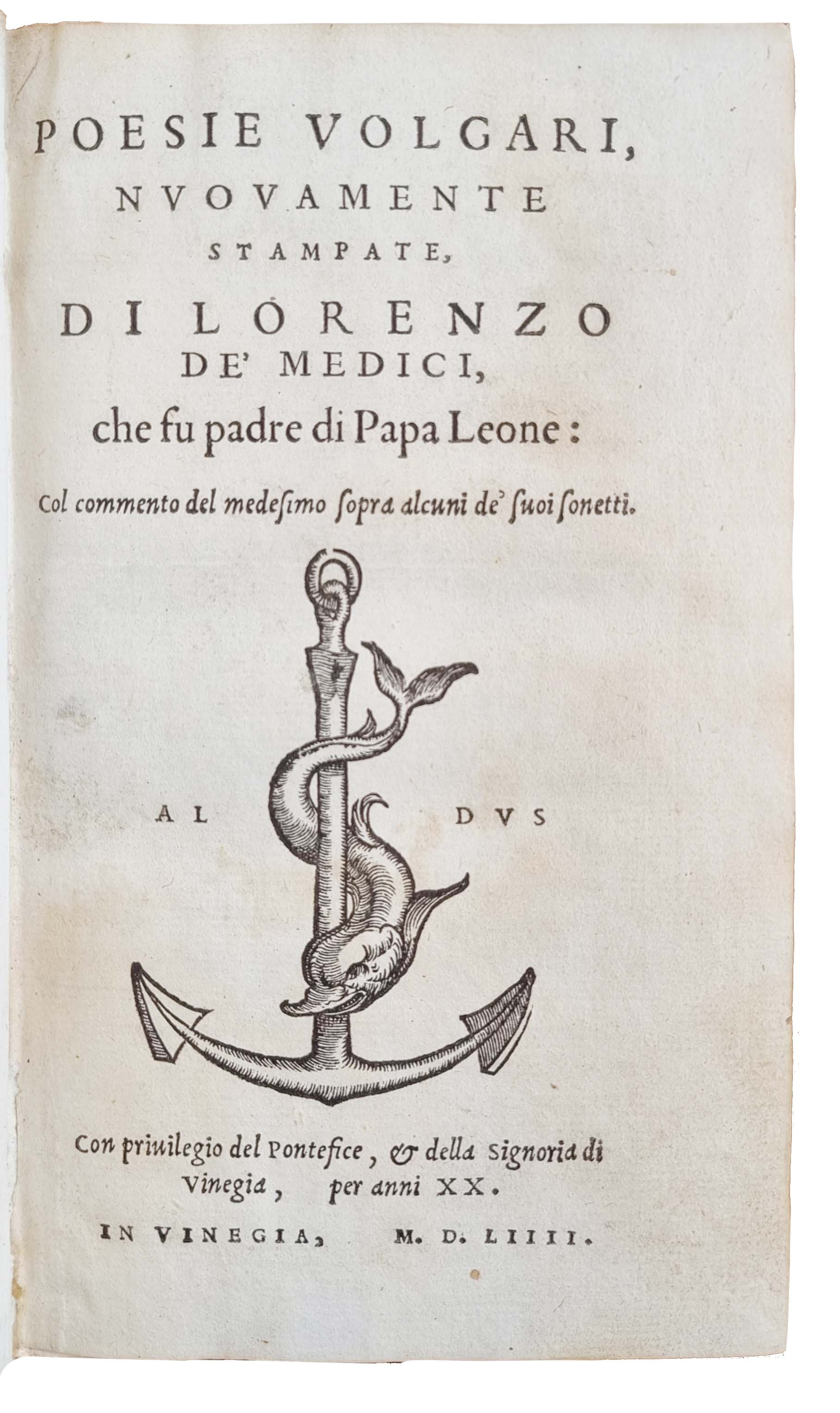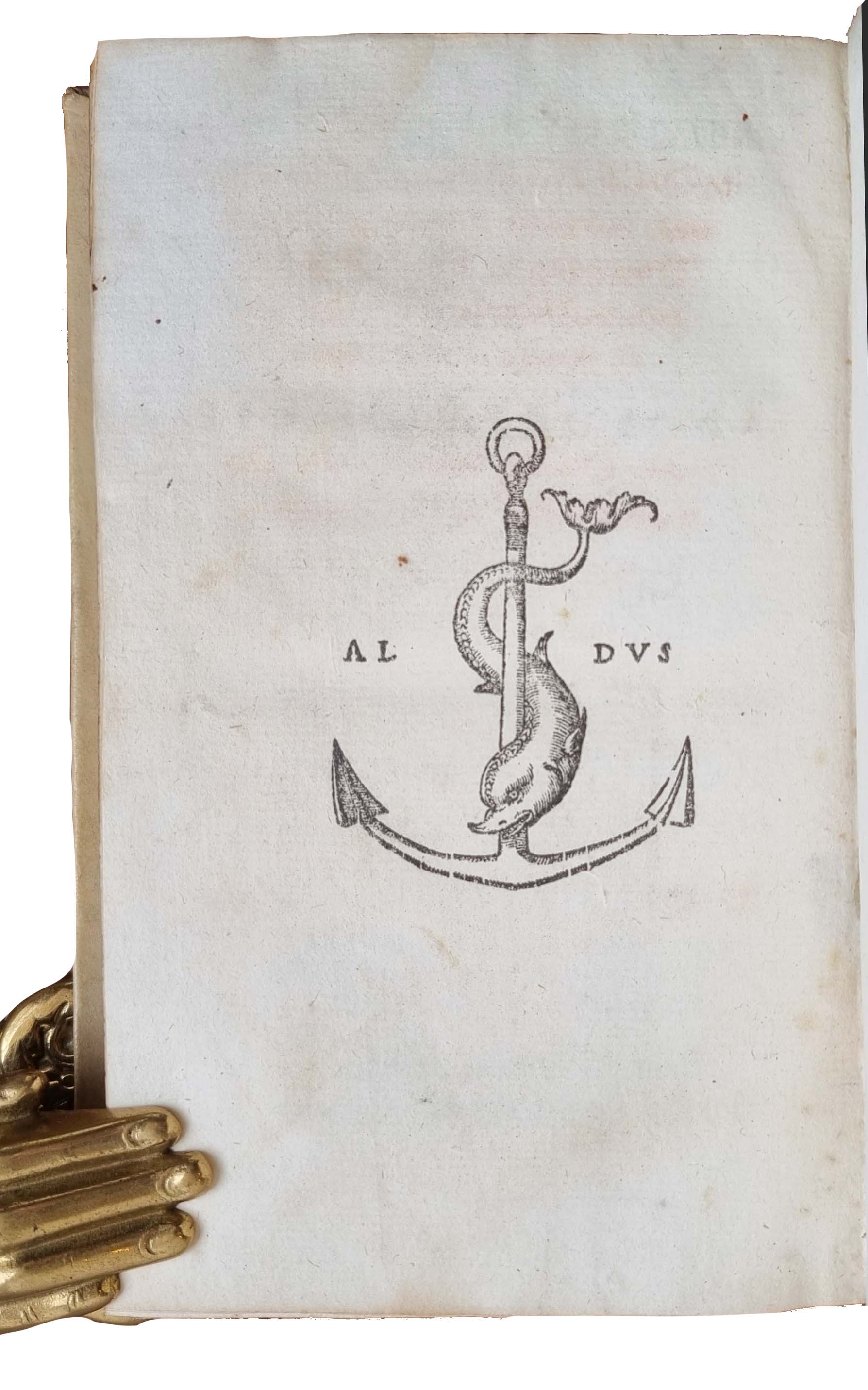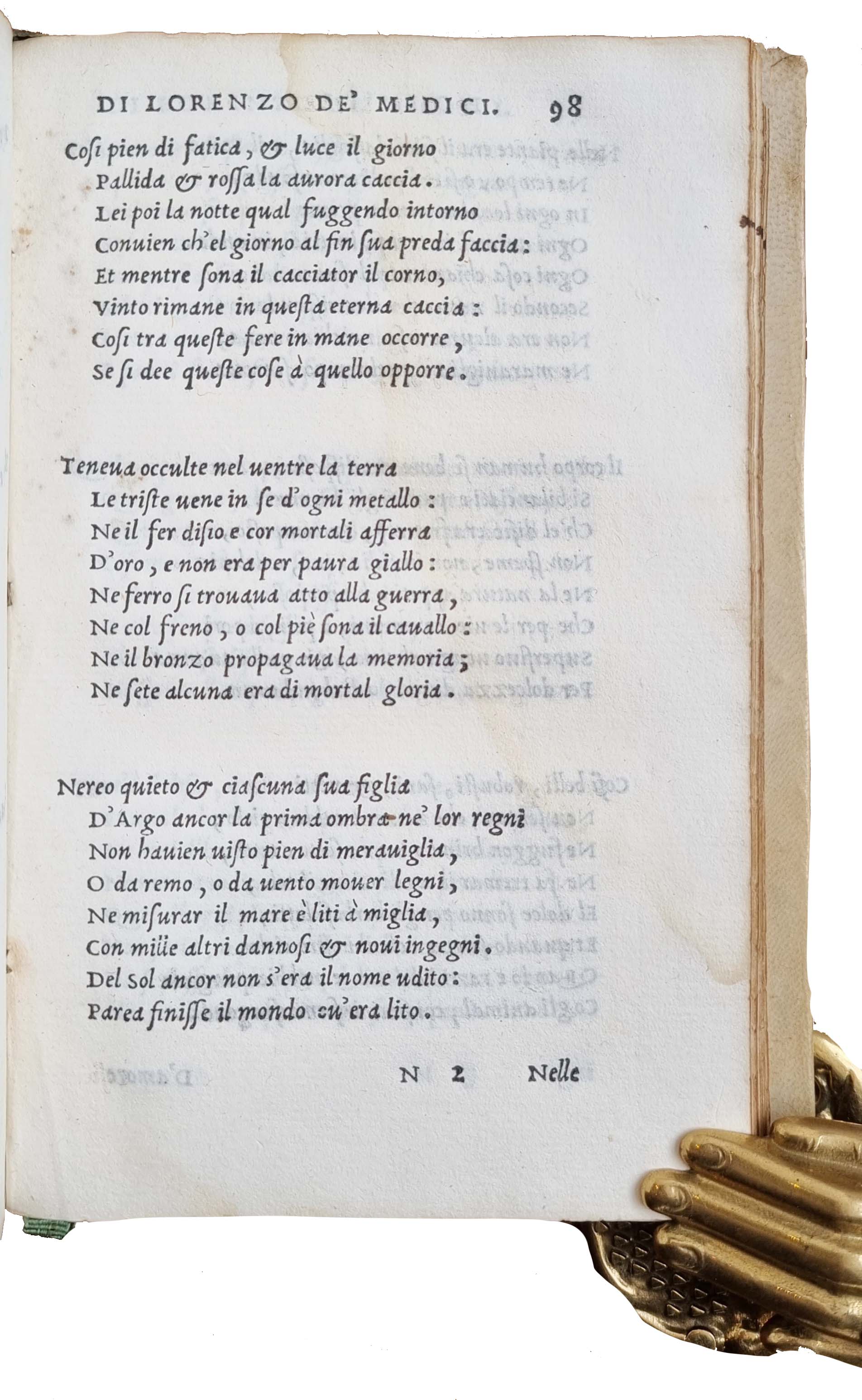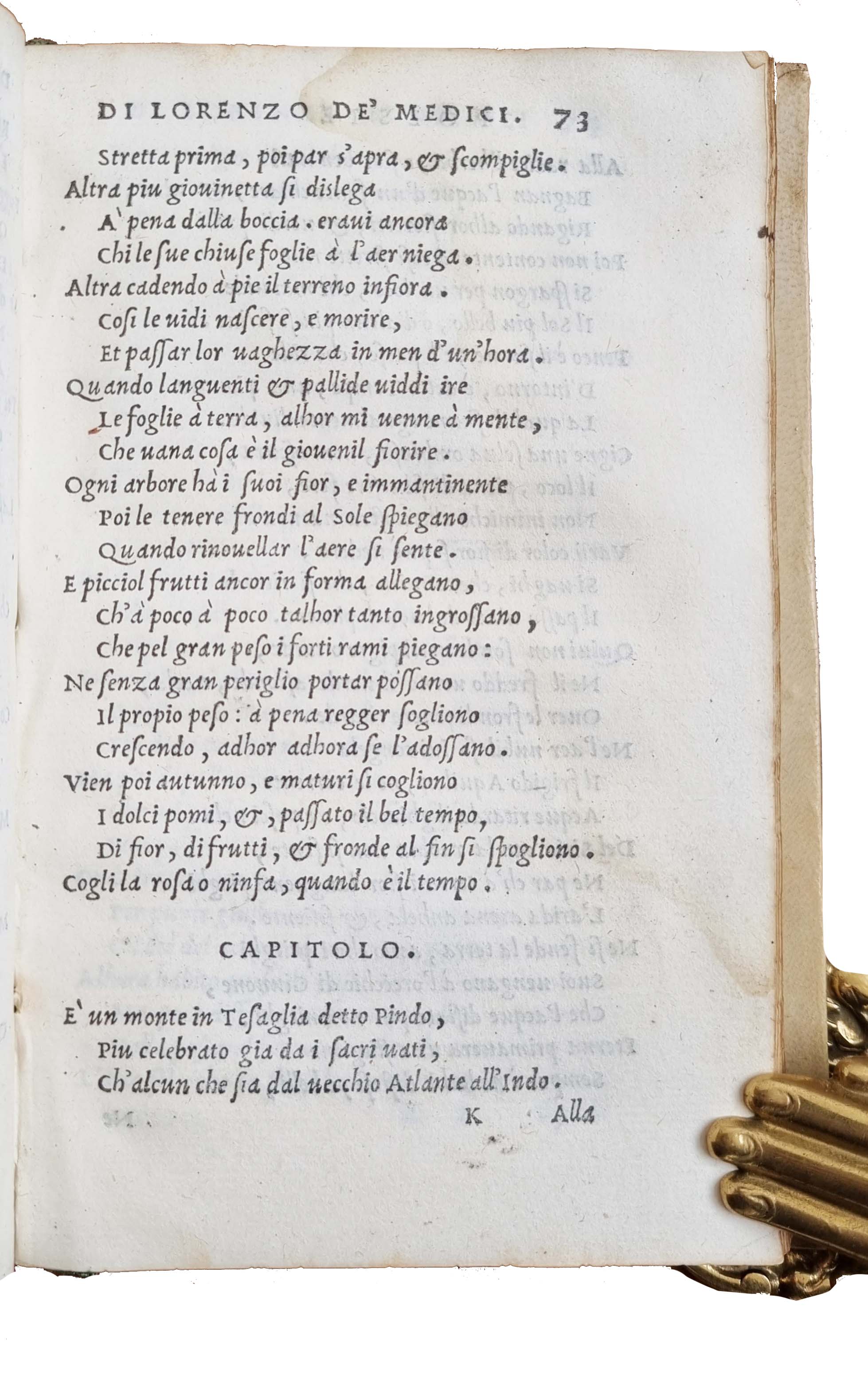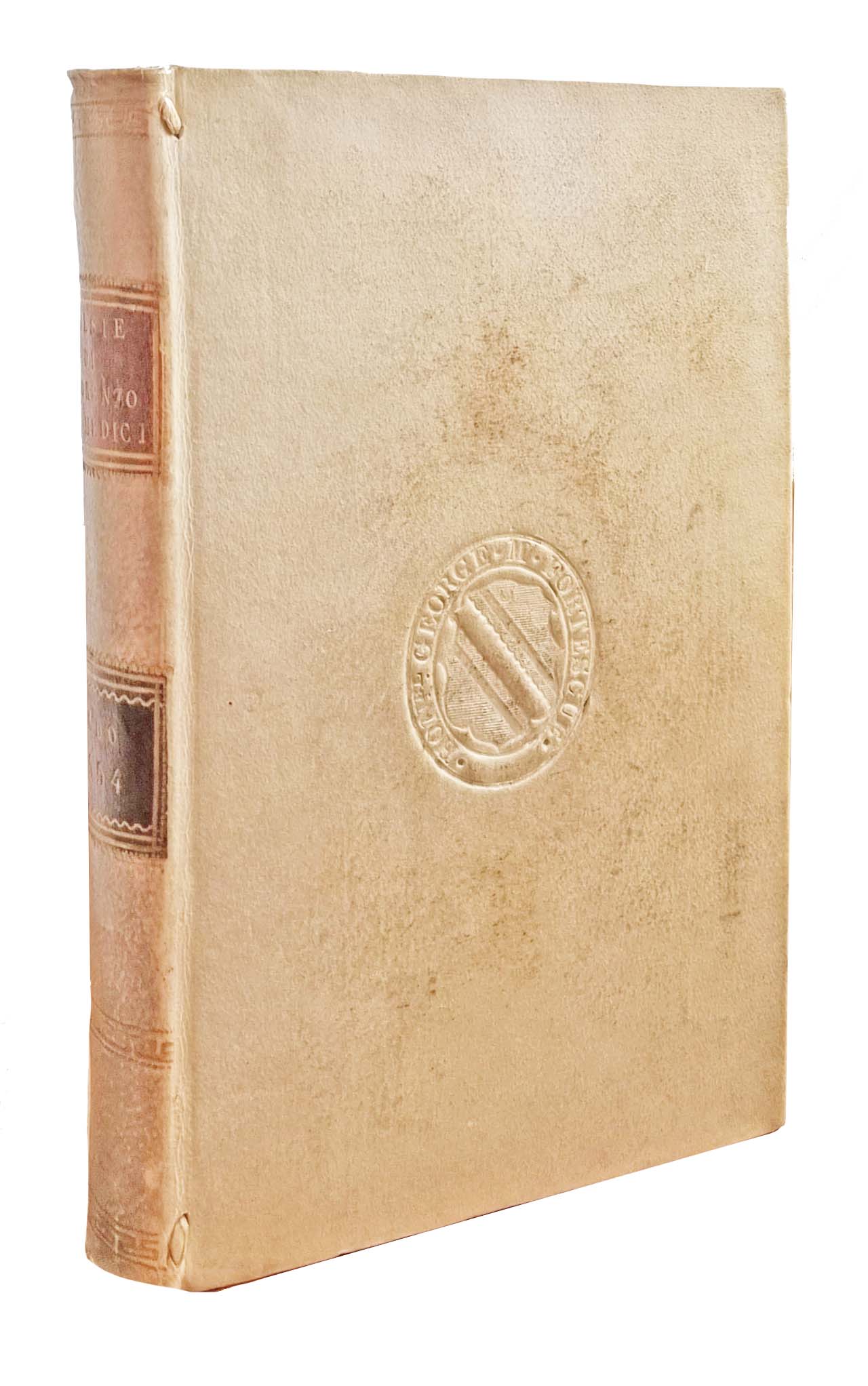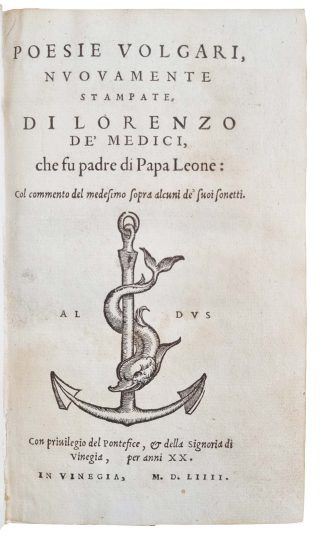DE’MEDICI, Lorenzo
Poesie Volgari
Venice, Figliuoli di Aldo, 1554£8,750.00
FIRST EDITION. 8vo. ff. 205 [iii]. Roman and Italic letter, anchor device to t.p. and verso of last, historiated woodcut initials. Light age yellowing, very light water stain towards outer margin, very occasional spot or mark. Without O5-8 as usual and excluded from the register, comprising canzoni that were suppressed. A very good copy, crisp and clean in c1800 vellum, spine gilt ruled in compartments, olive and red morocco gilt lettered labels, original gilt and gauffered edges, arms of Hon George Fortescue blind stamped on upper cover.
FIRST EDITION of the poems and poetic commentary of Lorenzo de’Medici, some of which are were written as early as age 17. The sonnets, sestinas, and songs are almost entirely preoccupied with love for beautiful women, in a style both imaginative and lively that strives toward the lyric of Dante and Petrarch. In his “Comment” on the poems, Medici expounds on life, love, his philosophical influences, and even current events that inspired him. For instance, he describes the death of Simonetta Vespucci, “la bella Simonetta” after his own nickname for the model for Boticelli’s Venus, and its influence over his work: throughout Florence her early death produced sadness and ‘a most ardent longing for her. And therefore she was taken uncovered from her house to the burial place, and moved all who crowded around to see her to copious tears’. Poems written later in life are also included in the volume, of a more serious and religious nature: on the virgin Mary, and the Crucifiction and Resurrection of Christ.
Lorenzo de’Medici “The Magnificent” (1449 – 1492), scholar, politician, and poet, was the driving force behind the flourishing culture of 15th century Florence through his patronage of the arts. Walter Pater’s characterization of Lorenzo’s age with that of Pericles is perhaps most apt: “It is an age productive in personalities, many-sided, centralized, complete. Here, artists and philosophers and those whom the action of the world has elevated and made keen, do not live in isolation, but breathe a common air, and catch light and heat from each other’s thoughts. There is a spirit of general elevation and enlightenment, in which all alike communicate.”
George Fortescue (1791-1877) son of the first Earl Fortescue, was member of Parliament for Hindon, who supported many pro-catholic bills in parliament. Although little noticed a a collector, he had a fine library, particularly of Aldines.
Renouard 162.23 ῾῾Presque tous les exemplaires sont multilés de cinq chansons (Canzoni) dans le feuille O᾽᾽. Adams M1005. Ahmanson-Murphy IIIa 410. Gamba 648 ῾῾Raro...Questa edizione Aldina fu tenuta in molto pregiο᾽᾽. Not in Gay.In stock


